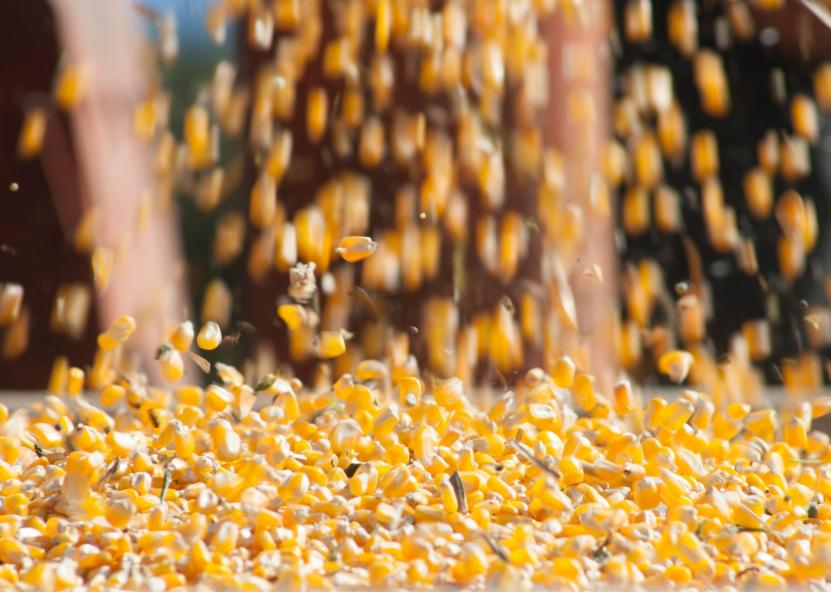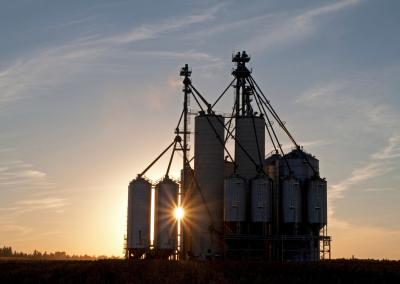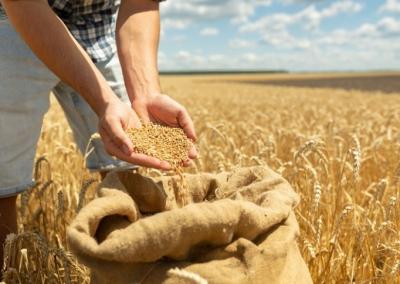The discovery of unpigmented seeds among food or feed grains can lead to significant losses
As cereal growers empty their stores and prepare to sell their grain, the State Food and Veterinary Service (SVVT) reminds them that grain storage facilities and transport must be cleaned with the utmost care, and that under no circumstances should be allowed to leach untreated seeds into grain intended for food or animal feed.
„Grain contaminated with beet seeds is considered unfit for food and feed as it poses a risk to human and animal health. In the event that the controls identify cases of grain arriving for sale with seeds that have been treated with mordant, the contaminated consignment will be stopped and, depending on the extent of the offence, appropriate decisions will be taken on its further disposal, either for other uses without entering the food or feed supply chain, or for disposal. Farmers and grain traders are cautioned in advance and urged to only place safe and quality grain on the market. Prevention is the best way to protect against potential losses," warns Gediminas Gvazdaitis, Director of the Surveillance Department of the MoHFW.
The VMVT receives reports from grain buyers almost before each sowing season of consignments of grain that have been found to contain harmful adulterants, and reminds farmers that such grain is no longer suitable for sale, let alone for further production of food or feed. The cereals sold must meet all quality and safety requirements. The quality of the grain is determined by indicators such as moisture content, pest infestation, odour, temperature and others.
By far the most important step in preparing for spring sowing and ensuring the quality of the grain is to have properly prepared grain storage facilities and periodic control of pests, microbes, insects, rodents and moulds (professional assistance is provided by licensed companies). Grain stores, granaries or other containers must not only be clean and dry before they are filled, but also well ventilated. Walls and all surfaces that may come into contact with the grain must also be clean and accessible for cleaning. The windows and doors of the premises must be airtight and there should be no uncleanable corners inside that are conducive to the breeding of pests. Warehouses and equipment should be cleaned regularly. Dust, litter and waste must be properly handled to keep it free from pests.
Adequate attention must also be paid to the vehicles transporting the grain, which must be in good working order, leak-proof, clean of any residue from the previous transported cargo, dry, free of odours and pests. Vehicles such as grain trucks are prohibited from carrying chemicals, hazardous materials, various equipment and materials, especially glass and metal, and products with strong odours.
„We would like to emphasise that cereal growers can use plant protection products, but it is important to do so properly and to use only plant protection products registered in Lithuania and to strictly observe the application rate indicated on the label. Professional users of plant protection products must store plant protection products and treated seed in a locked and warning-marked auxiliary farm building, in their premises or in a separate locked box or cupboard with a warning label. The storage of food, water or feed in such a room is prohibited. In grain stores, such plant protection products must have a dedicated place, as this can become a source of contamination," stresses G. Gvazdaitis. This year, VVM inspectors will also carry out targeted inspections of farms of origin, warehouses and vehicles transporting consignments. To protect consumer and animal health, every suspicion will be followed up with an investigation and sampling of cereals for testing for pesticide residues. Non-compliance will lead to market restriction measures and administrative penalties. Particular attention will be paid to consignments of exported cereals. Countries buying such products from Lithuania may take the most severe sanctions if they find that the arrival of food grains is tainted with belabelled cereals - stopping the export of such products and removing Lithuania from the list of exporting countries for a certain period. It is therefore very important to assess these risks in time and take the necessary measures to avoid them.![]()















































































































